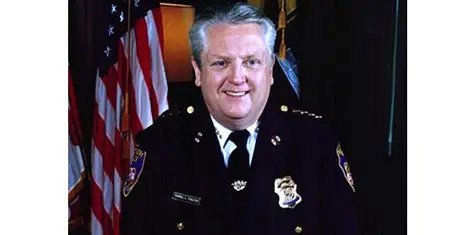Frazier: Police Reform a Rocky Road
May 10, 2013
Posted in Police-Public Safety
By Post Staff
The new independent Compliance Director who oversees the Oakland Police Department has released a sweeping “Remedial Action Plan” that requires broader reforms than those that were part of the original settlement that led to the federal takeover.
“This action plan…goes well beyond the issues contained in the 11 Negotiated settlement Agreement (NSA) remaining
noncompliant items. This authority was specifically granted by Judge (Thelton) Henderson to ensure that Oakland has a strong police department…at the end of our work here,” wrote Compliance Director Thomas Frazier in his May 1 report, who also said he was not expecting easy acceptance of the reforms.

“Very few of the items we list in this plan can be initiated easily and painlessly. The road ahead will certainly be rocky, and occasionally divisive. However, we feel confident that we can navigate these issues and produce a solid foundation for the future success of the Oakland Police Department,” he said.
The 2003 NSA, which brought Oakland under the oversight of Judge Henderson, was the part of the settlement in the Riders Case, in which 119 local plaintiffs sued the city in 2000. The city paid out a $10.9 million award and agreed to be in compliance with the reforms called for in the NSA within five years.
Areas of concern that Frazier will focus on:
“While the vast majority of OPD officers are dedicated, hardworking men and women doing an extraordinarily difficult job, a few behave in manners that result in citizen complaints and administrative investigations,” according to the plan.
“Supervisors fail to enforce departmental policy by not intervening in or reporting unacceptable behavior that they are either informed of or witness.”
“Investigations fail to thoroughly and impartially seek the truth in reported allegations of officer misconduct.
Executive leadership has permitted members of the organization to believe that (unacceptable) behaviors … are both tolerated and acceptable.”
One of Frazier’s specific concerns is that OPD uses confidential informants, whose reports sometimes lead to confrontations between suspects and police, even though nothing has been done to verify what the informants said.
“We are troubled that OPD officers are initiating stops and point their firearms at subjects based on information that has not been determined to be reliable. Most informants have issues with their own conduct and credibility.”
“We have noted occasions where no further investigation was conducted to support the information proved by an OPD ‘confidential informant.’”
Another area of Frazier’s concern was the racial disparity in incidents where officers pointed firearms at suspects.
“The total racial breakdown for the 61 use of force events reviewed is as follows: Black, 70 percent; Hispanic, 22 percent; White, 3 percent; Asian, 2 percent; and Other, 3 percent.
“We also tabulated the racial breaking of the subjects involved in the events, where, in our opinion, the pointing of a firearm was not necessary or appropriate and found the following: “Black, 87 percent; and Hispanic 13 percent.”
In addition, OPD has not carried out its policy that requires regular report on whether officials are conducting racial profiling, stopping residents for no reason except race or ethnicity.
The policy says the “Racial Profiling Manager shall produce a written report to the Chief of Police twice per year that includes an analysis of the data collected and appropriate policy recommendations,” according to the action plan.
“Based on our knowledge, OPD has not prepared such a report in the last 12 quarters; however OPD has advised of its intent to analyze the collected data once the data is accurate,” the action plan said.
The full text of the Remedial Action Plan is available at www.cand.uscourts.gov/pages/964